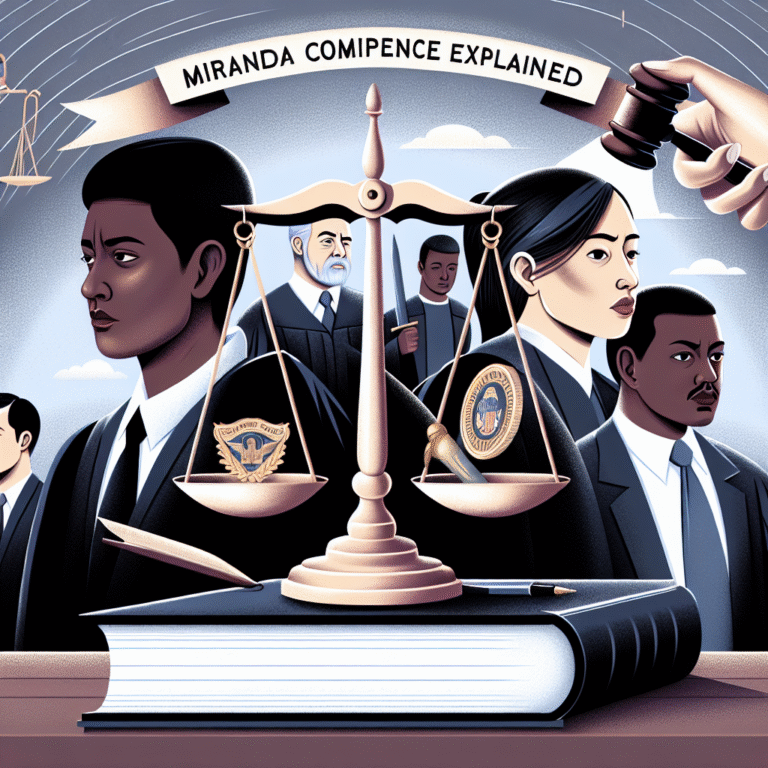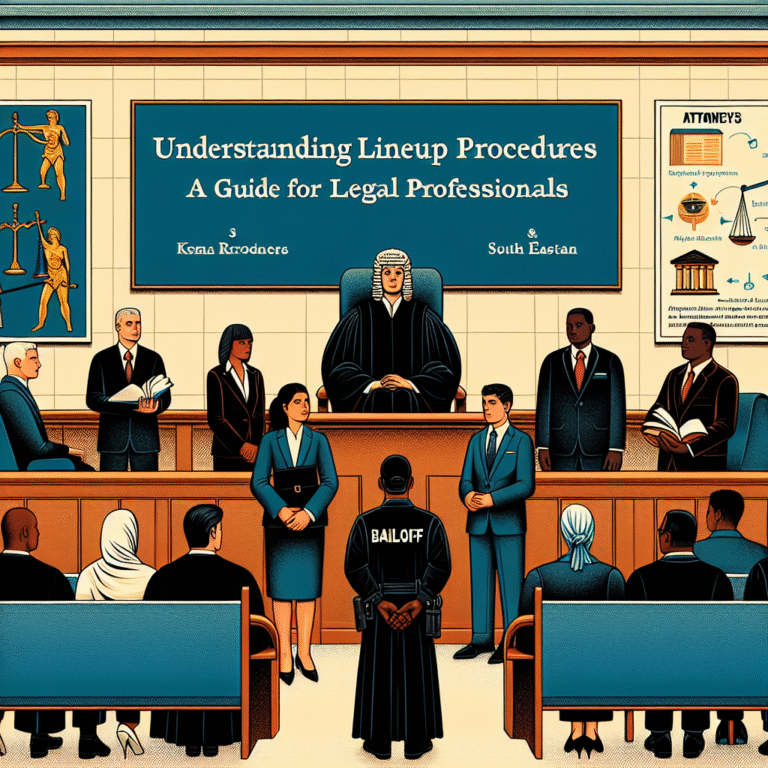
Introduction: Unraveling the Truth
In the high-stakes world of criminal investigations, the race to uncover the truth often hinges on the ability to extract accurate information from witnesses and suspects. Within this complex landscape, forensic interviewing stands out as a foundational technique, often described as the secret weapon that investigators wield to piece together the puzzle of a crime. This method not only aids in gathering reliable testimony but also plays a pivotal role in building trust between the investigator and the interviewee. In this article, we will delve into why forensic interviewing is an essential tool in criminal investigations, drawing on real-world applications, case studies, and expert insights.
The Foundations of Forensic Interviewing
What is Forensic Interviewing?
At its core, forensic interviewing is a structured approach to obtaining information that is relevant to a criminal investigation. Unlike traditional interrogation methods, which can involve pressure and coercion, forensic interviewing prioritizes rapport-building and open-ended questioning to elicit truthful information. This technique is widely used by law enforcement agencies to gather evidence from various sources, including witnesses, victims, and suspects.
The Importance of Forensic Interviewing in Criminal Investigations
Forensic interviewing serves several vital functions in criminal investigations, including:
- Facilitating Truthful Disclosure: When conducted effectively, it helps the interviewee feel comfortable, thereby increasing the likelihood of accurate information being shared.
- Reducing False Confessions: By focusing on a non-confrontational approach, forensic interviewing can minimize the risk of eliciting false confessions, which are a significant concern in the criminal justice system.
- Enhancing Information Quality: The structured nature of forensic interviews allows for the collection of detailed and reliable information, which is crucial for the integrity of the investigation.
Key Principles of Forensic Interviewing
Rapport Building: Establishing a connection with the interviewee is essential. A friendly and empathetic approach can make individuals feel safe and more willing to share information.
Open-Ended Questions: Instead of leading questions that can manipulate responses, forensic interviewing encourages open-ended queries, promoting more expansive and informative answers.
Active Listening: Investigators must not only ask questions but also listen carefully to the responses, allowing them to follow up on relevant points that may arise.
- Documentation: Accurate recording of the interview process, including the context and responses, is critical for future reference and potential court use.
Case Studies: The Real-World Applications of Forensic Interviewing
Case Study 1: The JonBenét Ramsey Investigation
One of the most infamous cases in American history, the JonBenét Ramsey investigation, highlights both the power and pitfalls of investigative techniques, including forensic interviewing. After the tragic death of six-year-old JonBenét, investigators conducted numerous interviews with family members, friends, and neighbors. While the interviews produced a wealth of information, the initial attempts were marred by a lack of structured approaches.
Analysis: The case demonstrates the necessity of using forensic interviewing techniques to avoid leading questions that can skew testimonies and potentially derail an investigation.
Case Study 2: The Catholic Church Abuse Scandals
In cases involving sexual abuse, such as the Catholic Church scandals, forensic interviewing has emerged as an essential tool to gather testimonies from victims in a sensitive and supportive environment. Investigators trained in forensic interviewing techniques were able to elicit detailed accounts from survivors, leading to significant legal consequences and greater public awareness.
Analysis: This illustrates the crucial role of forensic interviewing in building trust and creating a safe space for victims, enabling them to disclose sensitive information that can impact the course of justice.
Case Study 3: The Steven Avery Case
The case of Steven Avery, featured in Netflix’s Making a Murderer, raises critical questions about the techniques used in gathering confessions. Avery’s initial interrogation involved aggressive tactics that led to questionable confessions. Subsequent reviews of the interviews highlighted the need for forensic interviewing methods that prioritize ethical practices and accuracy.
Analysis: This serves as a potent reminder of how traditional interrogation tactics can lead to false confessions, underscoring the value of forensic interviewing as a key tool in ensuring justice.
Charts and Tables: Enhancing Understanding
| Key Principles of Forensic Interviewing | Description |
|---|---|
| Rapport Building | Establishing a connection with the interviewee. |
| Open-Ended Questions | Encouraging expansive responses to elicit details. |
| Active Listening | Paying close attention to responses for follow-ups. |
| Documentation | Accurately recording the interview for future reference. |
The Evolution of Forensic Interviewing Techniques
Historical Perspective
Forensic interviewing techniques have evolved significantly over the years. Early interviewing methods often relied heavily on manipulation and pressure tactics, resulting in unreliable testimonies. With advancements in psychology and communication strategies, modern approaches focus on ensuring ethical standards and maximizing the quality of information obtained.
Current Best Practices
Leading organizations, such as the International Association of Chiefs of Police (IACP) and the National Institute of Justice (NIJ), advocate for training in forensic interviewing as part of essential law enforcement procedures. Regular workshops and refresher courses ensure that investigators remain knowledgeable about the latest strategies and techniques.
Integrating Technology
The rise of technology has also impacted forensic interviewing. Video recordings of interviews provide a transparent record of the interaction, allowing for evaluations of the process and enhancing accountability. Additionally, software tools can analyze verbal and non-verbal cues, helping investigators improve their interviewing skills.
Conclusion: Embracing Forensic Interviewing for Justice
Forensic interviewing stands as an essential pillar in the realm of criminal investigations, providing investigators with the necessary tools to extract valuable information while ensuring ethical standards are maintained. As demonstrated through various case studies and evolving best practices, prioritizing this method can lead to more reliable testimonies, reduced false confessions, and ultimately, a fairer justice system.
To foster a culture of transparency and accountability in law enforcement, it is crucial that forensic interviewing be embraced and implemented consistently. By understanding its principles and applications, investigators will not only enhance their skill sets but also contribute meaningfully to the pursuit of justice.
FAQs: Common Questions About Forensic Interviewing
1. What is the primary goal of forensic interviewing?
The primary goal of forensic interviewing is to obtain accurate and reliable information from witnesses, victims, or suspects in a way that encourages truthful disclosure while minimizing the risk of leading or suggestive questioning.
2. How does forensic interviewing differ from traditional interrogation?
Forensic interviewing focuses on building rapport and using open-ended questions, while traditional interrogation often involves pressure and confrontational techniques, which can lead to false confessions or incomplete information.
3. Why is rapport important in forensic interviewing?
Establishing rapport is crucial because it creates a comfortable environment in which interviewees feel safe to share their experiences openly, ultimately increasing the likelihood of obtaining accurate information.
4. Are there specific training programs for forensic interviewing?
Yes, several organizations offer specialized training programs in forensic interviewing techniques, emphasizing ethical considerations, psychological principles, and practical skills.
5. Can technology be used to enhance forensic interviewing?
Absolutely. Video recording interviews provides a permanent record of the process, while analysis software can help investigators evaluate verbal and non-verbal communication, enhancing their interviewing effectiveness.
By embracing forensic interviewing as a key tool in criminal investigations, we can ensure a more reliable and ethical pursuit of justice, ultimately benefiting all facets of society.

















